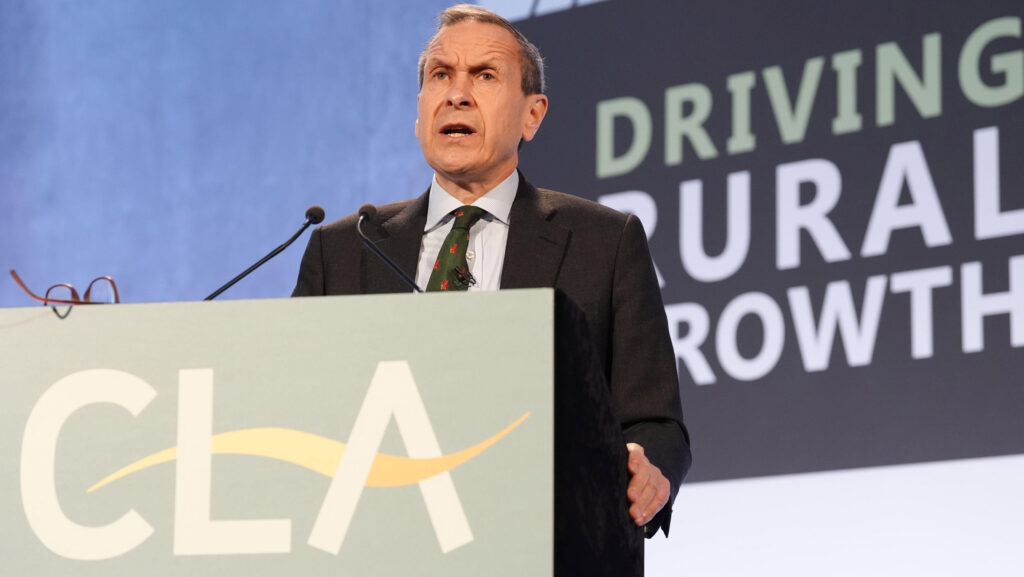CLA chief slams Labour’s anti-family business ideology
 Gavin Lane © PA Images/Alamy Stock Photo
Gavin Lane © PA Images/Alamy Stock Photo Labour attacks on family businesses and private investment – whether out of inexperience or ideology – risk undermining the rural economy and jeopardising food producing businesses, according to Country Land and Business Association (CLA) president Gavin Lane.
Addressing the CLA’s annual conference in London on Thursday (20 November), Mr Lane said the government’s plans to limit agricultural property relief (APR) and business property relief (BPR) would penalise the very businesses that could deliver growth in the economy.
See also: Vicky the cow leads last-minute IHT fight in Westminster
“This government has decided that APR and BPR are “loopholes” being exploited by wealthy individuals to avoid tax,” said Mr Lane.
“Their ministers tell us repeatedly that they’re targeting those who buy farmland purely as a tax shelter.
“They say only the wealthiest will be affected. They insist the vast majority of family businesses will be fine.
“But, whether through ideology, inexperience, or a fundamental misunderstanding of how family businesses work, this government is treating intergenerational asset transfer as a problem to be solved rather than the foundation of sustainable, long-term investment.”
Mr Lane said the government’s economic theories about wealth inequality was creating uncertainty and undermining the private investment so necessary for economic growth.
Intergenerational stability
“The government needs the solutions that only long-term, well-managed family businesses can provide,” he said.
“But their current position demands they strip you of the very thing – intergenerational stability – that makes that investment possible.”
“The Treasury has swallowed an economic theory – that private capital accumulation is the problem – without understanding that private capital investment is the solution,” he claimed.
Mr Lane said the need to change government thinking was of paramount importance.
“If we don’t, it will be bleak, with us watching over multiple family businesses dismantled, rural communities hollowed out, and the solutions to national challenges discarded.”
Defra secretary response
Also addressing the conference, Defra secretary Emma Reynolds said she understood the rural community’s concerns about APR and BPR, but declined to be drawn further on the issue.
Instead, she pointed to Defra’s impending Land Use Framework, the 25-year Farming Roadmap, the as yet unpublished farm profitability review, and the long-awaited Sustainable Farming Incentive (SFI) relaunch.
“Those are the things that I am committed to and I hope that will help rebuild confidence,” she said.
SFI update
Ms Reynolds also used the CLA conference to provide an update on the SFI, describing it as “our most popular scheme with 39,000 live agreements” and “at the top of my inbox”.
“Over the course of this year, the team have worked closely with the CLA and other stakeholders to consider improvements which build on what has been working well in SFI and addressing what hasn’t worked so well,” she said.
“We’ll introduce improved budgetary controls to help money reach more farmers.
“And focus on the most impactful actions to benefit the environment and which work alongside your business.”
Full scheme details, including the budget, timings, and eligibility criteria, would be published “well ahead of launch”, though this would not be until “the first half of next year”.
